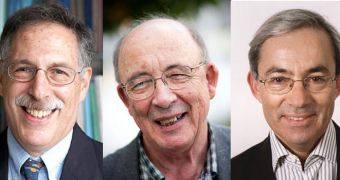The Nobel Foundation announced that the 2010 Nobel Prize in Economics will be shared between economists Peter A. Diamond, Dale T. Mortensen, and Christopher A. Pissarides.
The three scientists have been awarded the prestigious Prize “for their analysis of markets with search frictions,” the official announcement says.
Peter A. Diamond, who got his PhD in 1963, is an Institute Professor and a Professor of Economics at the Massachusetts Institute of Technology (MIT).
Co-winner Dale T. Mortensen is a professor at the Northwestern University, in Evanston, Illinois, whereas Christopher A. Pissarides is based at the London School of Economics, in the United Kingdom.
One of the primary things that the three experts did was elaborate an intricate analysis of how governments and economic policies affect the level of unemployment in a country.
“On many markets, buyers and sellers do not always make contact with one another immediately,” says the press release that accompanies the official announcement.
“This concerns, for example, employers who are looking for employees and workers who are trying to find jobs. Since the search process requires time and resources, it creates frictions in the market,” the document adds.
“On such search markets, the demands of some buyers will not be met, while some sellers cannot sell as much as they would wish. Simultaneously, there are both job vacancies and unemployment on the labor market,” experts add.
Mortensen, Pissarides and Diamond have formulated a theoretical framework for search markets, which deals specifically this analyzing these issues in great detail.
MIT's Peter Diamond play a critical role in developing the foundations of search markets, while Dale Mortensen and Christopher Pissarides worked on expanded the theory and applying it to the labor markets.
All three recipients will together receive about $1.5 million in cash prizes, which they will then split.
According to Diamong, his goal in studying markets was “to pay much closer attention to how the economy plays out in real time than in the simplest abstractions of how markets work.”
“In the labor market, it takes time for workers to find suitable jobs, it takes time for employees to find suitable workers, and that dynamic has a feedback into how wages are determined and how efficient the economy is,” he adds.

 14 DAY TRIAL //
14 DAY TRIAL //